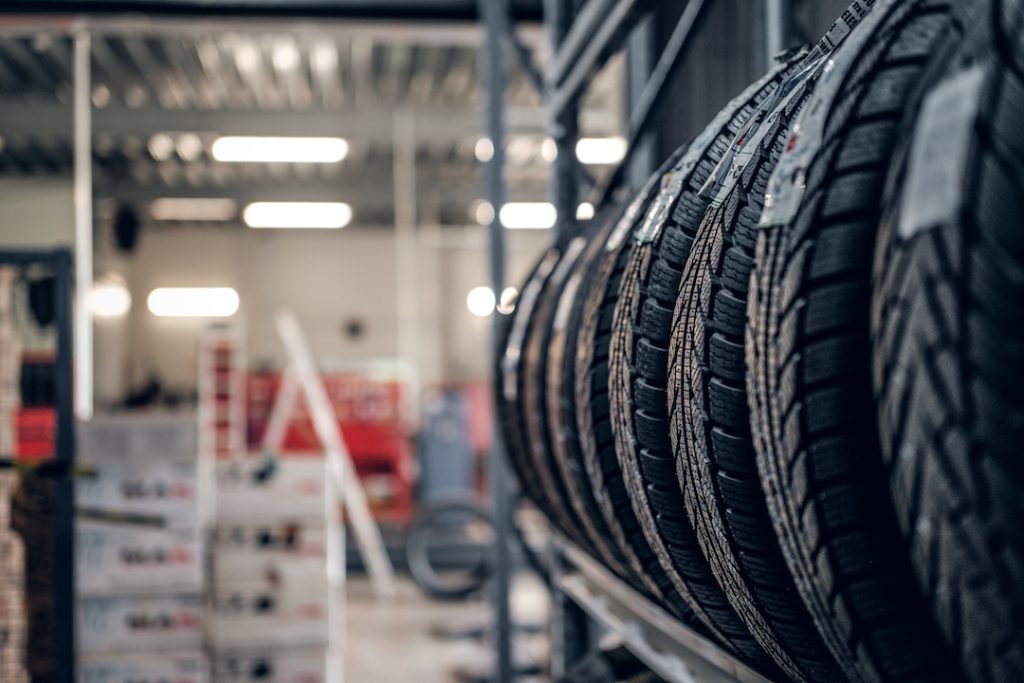Auckland Mechanics – Tyre service, tyre care
The best way to prolong the life of your tyres is to look after them. But what exactly does that mean?
We don’t recommend you make your tyres last as long as possible – but we do encourage you to do what you can to make them as safe as possible for longer.
What are the things you can do that will make a real difference to how long your tyres last?
Check your tyre pressure
Keeping the tyres on your vehicle inflated at the correct air pressure level is incredibly important for a few reasons. First off, tyres at the right pressure provide the greatest amount of safety. Your vehicle handles better and reacts to changes in direction and speed better when you have your tyres at the right tyre pressure.
As well as making your vehicle safer, correct tyre pressure will help prolong the life of your tyres. They will run as they were intended by the manufacturer and will wear better. Lastly, the correct tyre pressure will make your driving more fuel-efficient. Driving on underinflated tyres means your car is working harder to grip the road, therefore running less efficiently.
We recommend checking your tyre pressure at least once a month. Tyres gradually and naturally lose tyre pressure over time. They may also have a slightly different pressure in different seasons – colder temperatures can cause the air inside the tire to compress, so you may need to inflate them a bit more.
It’s also a good idea to check your tyre pressure before any long road trip. Refer to your vehicle owner’s manual for the recommended tyre pressure, or look for markings on the tyres themselves for the recommended pressure – it will be listed as a PSI number, which stands for pounds per square inch.
Check your tyres for damage
Even if you know very little about how your vehicle works, you can still do a visual inspection of your tyres. Look for any damage or tread wear. If there are bald patches, you’re putting yourself in danger – it’s time for a tyre change. Look for pieces of glass, nails, screws, or any other sharp objects embedded in the tyres.
It may not be wise to pull out any sharp object you find. The best thing to do is to take a photo and give us a call at Roskill Auto Mechanical. We can often tell by looking at the photo what the best next course of action should be.
Get your tyres rotated
As you drive, your tyres will wear differently. If you have a front-wheel-drive vehicle, your front tyres will receive more wear and tear. If you have a rear-wheel drive vehicle, your rear tyres will receive more wear and tear. Even 4WD vehicles experience different wear as the vehicle shifts the work from one set of tyres to the other.
There will also be spots on each tyre where the tread wears out differently. So it’s also important to have your tyres rotated from left to right. Your mechanic can check how your tyres are wearing and rotate them in a way that prolongs the life of your tyres while keeping you safe on the road.
Have regular wheel balance and alignments done
For maximum safety and operating efficiency, all four tyres should be aligned and balanced, not tilted in any way or facing any direction other than straight on. All four tyres should be parallel and pointed straight ahead, not toed-out (pointing out) or duck-footed (pointing in).
It sounds obvious, but even the slightest angle or degree of difference can greatly affect how your car operates.
Correctly balanced and aligned tyres will mean the tread wears evenly, without creating unsafe bald spots. It also means better fuel efficiency – your car doesn’t have to work on overdrive to compensate for tyres that aren’t gripping the road as they should be. Balanced and aligned tyres also create a more comfortable driving experience – your car won’t pull to one side or fight against you as you steer.
If you notice your vehicle pulling to one side or feel the steering wheel vibrating, that may be a sign that your tyres are out of alignment and need checking.
Any time you change a tyre on your vehicle, it’s a good idea to book in for a wheel balance and alignment. Replacing even just one of your tyres with a different one can be enough to put the whole system out of alignment, so it’s best to have it checked before you drive.
Book in for a Tyre Care Package at Roskill Auto Mechanical for a complete tyre check. We’ll balance all four wheels, rotate the tyres if needed, adjust the tyre pressure as needed, and provide a final Wheel Alignment report.
Check whether you have or need snow tyres
Most vehicles for personal (non-commercial) use in New Zealand can drive safely with all-season or all-terrain tyres. If you live in an area of challenging terrain or wintry conditions, however, it may pay to invest in snow tyres.
If you’re purchasing a vehicle imported to New Zealand from Japan, it may come with snow tyres. So it’s important to understand their function and how to identify them.
Snow tyres hold a better grip on ice and snow because they are made with a softer rubber compound and have deeper treads. They can often be identified by a snowflake symbol on the sidewall or the letters “M+S” (for mud and snow) on them.
It’s important to note that if you’re going to use snow tyres, all four tyres on your vehicle must be snow tyres. Mixing snow tyres with all-season tyres will cause your vehicle to fail its warrant of fitness (WOF). Testing has shown that mixing tread levels like this can lead to a loss of control, poor breaking, and subsequent driving accidents.
If you’ve purchased a used vehicle that has snow tyres on it, and would like them inspected or changed, get in touch with us and we can look after you and your vehicle.
Drive carefully, drive to the conditions
The number one most important way to prolong the life of your tyres, the life of your vehicle, and the life of your vehicle’s occupants is to take care when driving.
New Zealand has some challenging road conditions that can present hazards. Take it easy on rural or unsealed roads and don’t drive on the motorway shoulder. Even in urban areas, slow down around roadworks and potholes. Keep your wheels away from kerbs and raised roundabouts.
Your tyres can, in fact, save your life on the road. Treat them well and they’ll keep you safe.
We recommend you have your tyres checked regularly, which may be every six months or every 8000 kms for an “average” driver.
Find out more about our Tyre Care Package by contacting us online or calling us on 092421870.

